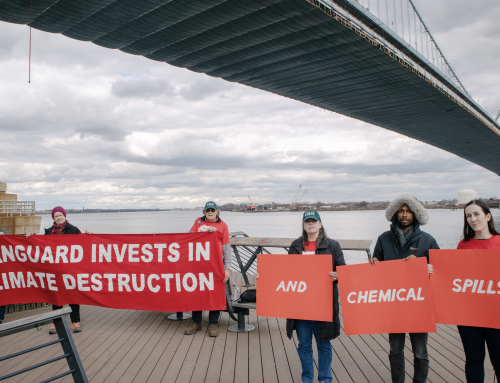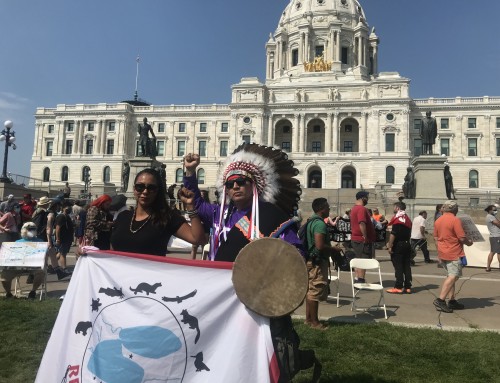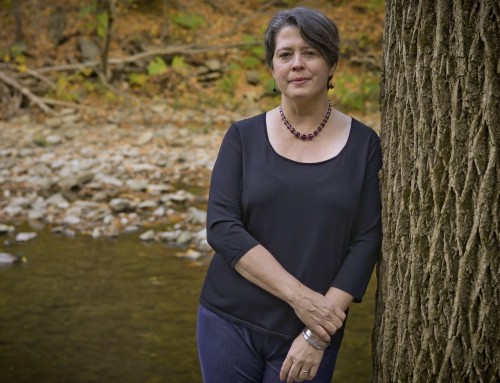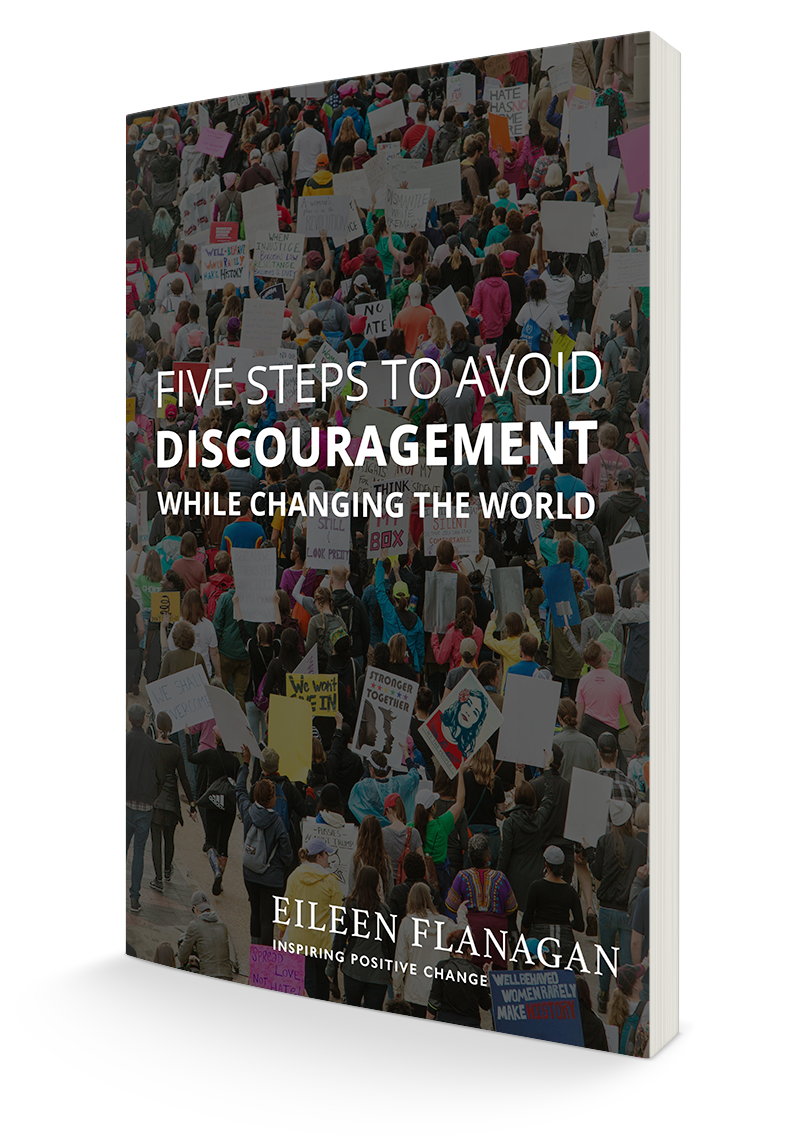
After the violence in Charlottesville, an African American friend of mine posted on Facebook that she’d had it with “spiritual white people.” I knew what she meant. As a white woman who has taught classes on spiritual discernment, racism, and social change strategy, I’d been thinking a lot about how to cultivate a spiritual response to hate that goes deeper than clichés about Love or denunciations of all violence, which is what many white people have been offering.
In a time when our brothers and sisters of color are calling on us to do more, here are seven practices to help us move beyond good intentions and toward actual transformation:
1. Recognize both Oneness and Difference
One of my core beliefs is that we are all One, deeply interconnected to each other and the earth. It’s a message that runs through diverse faith traditions, so I was surprised a few years ago when a friend who is wise and deeply spiritual recoiled at the sentiment.
Matthew Armstead and I had attended an environmental justice rally, where speakers stressed the high asthma rates in low-income communities of color. Near the end, a rabbi said, “We are all one,” and afterwards I told Matthew it was my favorite of the speeches.
“I hated that speech,” he said with more emotion than I expected.
A gay, black man, Matthew had recently spent three weeks supporting young activists in Ferguson, MO after Darren Wilson, a white cop, shot to death Michael Brown, an unarmed black teenager. Brown’s body was left in the street for hours, sparking outrage. Days before the environmental justice rally, a grand jury had exonerated Wilson, reinforcing the feeling that black lives really didn’t matter to white America. On the way home from the rally Matthew explained, “We may all be one, but we’re not exactly experiencing the world that way at the moment.”
In the years since this incident, I’ve become convinced that Matthew’s insight is crucial. We are all one, and we’re not experiencing the world that way at the moment. Saying both affirms the spiritual truth without erasing the experience of people who are being treated as other in the here and now. We need to hold both of these truths simultaneously.
If you don’t get why this is important, try practice #2.
2. Cultivate Compassion.
Every spiritual tradition encourages compassion. If you’re someone not directly impacted by a source of suffering—racism, for example—you may need to work to understand and stay in touch with the pain of people who are. If you’re a white person, this means listening—really listening—to the experiences of people of color, in person or through the many books, articles, and films that tell their stories. If you’re a man, try really listening to women. If you’re straight, Christian, or in some other privileged majority, get curious about how people who are different than you are experiencing the world at the moment.
Sometimes people use spiritual platitudes to try to protect themselves from this pain. I once heard a friend glibly say of someone’s suffering, “He must have done something bad in a past life.” When I questioned her lack of compassion, she said she was reading A Course in Miracles, which teaches that everything is an illusion.
Okay, here’s the thing: to someone who is in deep pain, being told that their situation is an illusion is not enlightening, it is hurtful. Likewise, “Everything happens for a reason,” “Our reward will be in heaven,” or “You get what you attract” doesn’t show compassion or build trust, especially when that person’s experience is part of a pervasive, longstanding social pattern that you may not want to acknowledge.
Try to let go of your impulse to judge, fix, or defend and really sit with what other people are experiencing. Don’t worry that hearing all this negativity will lower your vibration. The world’s greatest spiritual teachers have been people who faced human suffering rather than avoiding it. That’s how they cultivated such deep reservoirs of Love. Cultivating compassion brought them closer to the Divine.
3. Know thyself.
If you open your heart to someone else’s pain, you may well get in touch with some of your own. That’s okay. Just notice what comes up for you, and try not to judge yourself too harshly. Think of this as another form of spiritual practice—like meditating, only harder. Instead of dumping your anger, fear, or defensiveness back on the person sharing with you go grab your journal. Or grab a friend who is unlikely to be triggered by your processing, preferably another white person if you are white and learning about racism.
Most spiritual traditions advocate self-knowledge as a path to greater peace and liberation. This includes “shadow work,” the process of exposing those parts of ourselves we keep hidden, even from ourselves. How does this relate to social change? Well, for starters, it is hard to face the shadow in our culture’s history if you have not faced the shadow in yourself. This includes the implicit biases most of us absorb in a culture permeated with stereotypes. I think of these biases as clots in our spiritual arteries.
It’s not just the privileged who have these clots. You can have unconscious stereotypes about your own race, gender, religion, or sexual orientation that keep you from living your gifts fully or loving yourself and others with a full heart. We all have to bring our unconscious socialization into consciousness before we can heal it.
Bringing our unconscious feelings into awareness can also aid the concrete work of undermining fascism, which feeds on unconscious fear and anger. Self-knowledge does not take the place of other work, but it makes us better practitioners of that work, less likely to be driven by ego and more open to the guidance of the Spirit in all we do.
For example, if I’m marshalling the counter protest in my city when the Klan comes to town—which I may well be—I’d like to know that as many participants as possible (including myself) have done the inner work necessary to stay grounded amid conflict. That means recognizing our feelings so we can deal with them constructively. As a fellow activist said to me recently, “The most dangerous person to be in a nonviolent action with is someone not in touch with their own capacity for violence.”
4. Be faithful to a grounding practice.
When I was at the Paris Climate Summit in 2015, I had a strong sense that I was being called to pay greater attention to my spiritual practice to prepare for more turbulent times that were coming. I didn’t know what those times would look like, but now that they are here, I’m grateful that I had already made a commitment to regular walks in the woods and more frequent journaling. These two practices, along with weekly worship with my community, helped me to follow an intuition to start an online course after the election for those who wanted to take action and weren’t sure where to start. Because I had done that inner grounding work, I’ve been able to help hundreds of people who felt unmoored by the ugliness the election unearthed.
For some, regular grounding may mean prayer or meditation. For others it may mean yoga, journaling, or lighting a daily candle. Whatever helps you to be centered, self-aware, and connected to something greater than yourself, this is a good time to practice it, faithfully. It will help you do every other thing on this list.
When new people arrived at Standing Rock, they were asked, “Are you in prayer?” As a result of this orientation, the Water Protectors were able to model courageous nonviolent action even in the face of water canons, Tasers, tear gas, mace, and pepper spray, which injured hundreds of people, some severely. The fact that no one was killed was hailed as a miracle. So was the healing ceremony that occurred when veterans of the U.S. military came to stand as a buffer in front of the indigenous people whose land was under siege and then formally apologized to them for all the violence the U.S. military has committed against Native Americans over the centuries. It was a powerful example of the transformation that is possible when spirituality and nonviolent activism are combined.
A friend and I have been discussing what we need to do to prepare in case we are ever called to stand on the front lines, in place of Antifa, willing to take blows but not deliver them. In addition to training, I know I need to stay connected to Spirit now, first to make sure that if I accept such a role it is out of a sense of calling, not ego. Second, because I know I could only do something that hard with God’s help.
Even if you’re pretty sure that will not be your particular calling, commit to a grounding practice that will help you to discern and live whatever work is yours to do.
5. Don’t assume that your grounding practice is all you’re called to do.
“I’ll just stay home and meditate, and my inner peace will radiate out and heal the world,” is the kind of line that gives spiritual white people a bad name, especially with those who are suffering from oppression in the here and now.
I do believe in the power of prayer, and for some, that may be their primary role. But far too often we jump to that comfortable place without deeply asking if we are called to do more, to risk more ourselves. We do this partly out of fear, partly because so many of us were taught that there’s not much we can do, encouraging a passive spirituality that puts everything in God’s hands because we are afraid to get our own hands dirty.
I believe that there is a greater spiritual force that we can call on for help and that we co-create reality with that force, whatever name we call it. That’s why I pray for the future of our planet and work like hell to push my local utility to transition to solar. I try to manifest love and show up to the ongoing work of building the beloved community, whether than means marching against white supremacy, speaking up about racism in my own community, or doing the hard work of rooting it out of myself.
There are many concrete things we can do, and we are not all called to the same roles. Listen for your own call, but please don’t wait until you are 100% self-aware, or certain, or totally prepared before taking action, especially if you are someone whose privilege makes it possible for you to avoid the most painful effects of inaction.
As author Tara Mohr writes, one sign of a calling is that we are not yet the people we need to be to fulfill the calling. Take a step. Trust that light will be given for the step after that.
Two more things…
6. Don’t go it alone.
Contemporary spirituality can be particularly individualistic, as many people have left traditional religion and the community it provided. Changing the world is a group effort. If you haven’t yet, go find your people.
We need each other. We need the support, when things get tough. We need the challenge when we get complacent. We are also much, much more likely to be effective if our work for change goes beyond the individual and starts to deal with systemic problems.
Six years ago, I felt a growing call to work on climate change. I already composted my banana peels and took short showers. I turned down my hot water heater and insulated my house. But these individual actions felt so small compared to the problem that I felt discouraged and worried that nothing I was doing made a difference. I didn’t feel I was really following my calling until I joined a community of people who not only shared my concerns but who were taking action together, building our own capacity to make change, while nurturing our sense of connection to something greater than ourselves.
Even before our little group convinced a $4 billion-a-year bank to stop financing mountaintop removal coal mining, I found that taking action with others made me feel hopeful in a way that composting my banana peels never did. The same has been true of my work against racism. Even though it sometimes feels intractable, working with others makes me hopeful and brings me joy.
7. Don’t forget about goodness, beauty, and joy.
While I am critical of superficial spirituality that is only about sunsets and rainbows, that doesn’t mean I am against sunsets and rainbows. Actually, I love them both, along with beaches and fireflies and the warm embrace of a loved one. I believe in gratitude and self-care and many other things that sustain us, no matter what part we play in the work of healing the world.
I say this because sometimes people start to learn about racism, climate change, or other urgent issues and they become unbalanced in the opposite way, intolerant of anyone who is not suffering all the time. This is not the true spiritual path either. Being against oppression is not the same as being for liberation. I, for one, want liberation, for all of us.
The world is good and bad, beautiful and ugly. Just as people are both. Just as you and I are both. Seeing the goodness and beauty in others is its own route to the Divine.
Seeing the goodness and beauty in ourselves will make us more resilient when we screw up, which we almost certainly will. If we see our screw-ups as a chance to deepen our self-knowledge and compassion, we will be better able to listen and act without getting paralyzed by shame or fear.
We need inner change and outer change. That’s what leads to true transformation. In fact, it may be in working to heal the world that we will find our own healing, and in listening to the differences between us that we come back to our deep Oneness in the end.
To learn more about how to effectively work for a more just, sustainable, and loving world, please check out my online courses.
**Correction: My wording has been tweaked since the original post to make clear that Michael Brown was not alive the whole time his body was in the street.






This is really beautiful, insightful and inspiring. Thank you for sharing.
I’m wowed by the clarity and timeliness of this reflection. It’s so holistic and balanced, and at the same time not boringly fuzzy-minded as “holistic and balanced” writing sometimes is. It’s obviously written by someone who walks her talk.
Thank you!
Wise words from a wise woman. This piece will be very helpful in our work at Friends Council as we help educators navigate teaching in these uncertain times. Thank you.
Read with gratitude. Matthew’s insight, “We may all be one, but we’re not experiencing the world that way at the moment” speaks volumes to me.
I am also wowed by the clarity and timeliness of this piece. I believe it will be so helpful to our Meeting’s Peace and Social Justice committee. Thank you
I love the way this was presented. We are not in the same mind frame as everyone else. All of our experiences are unique and we each follow a path.
What a beautiful birthday present. Thank you for taking the time to be clear and holistic in what you write. I’m definitely going to share it with folks in my community. Carry On!!!
Sunday afternoon read, before the NY Times….Lovely!… your writing is such a gift to a wounded world. May you continue to be blessed with thought-provoking words.
Thanks all for the affirming comments!